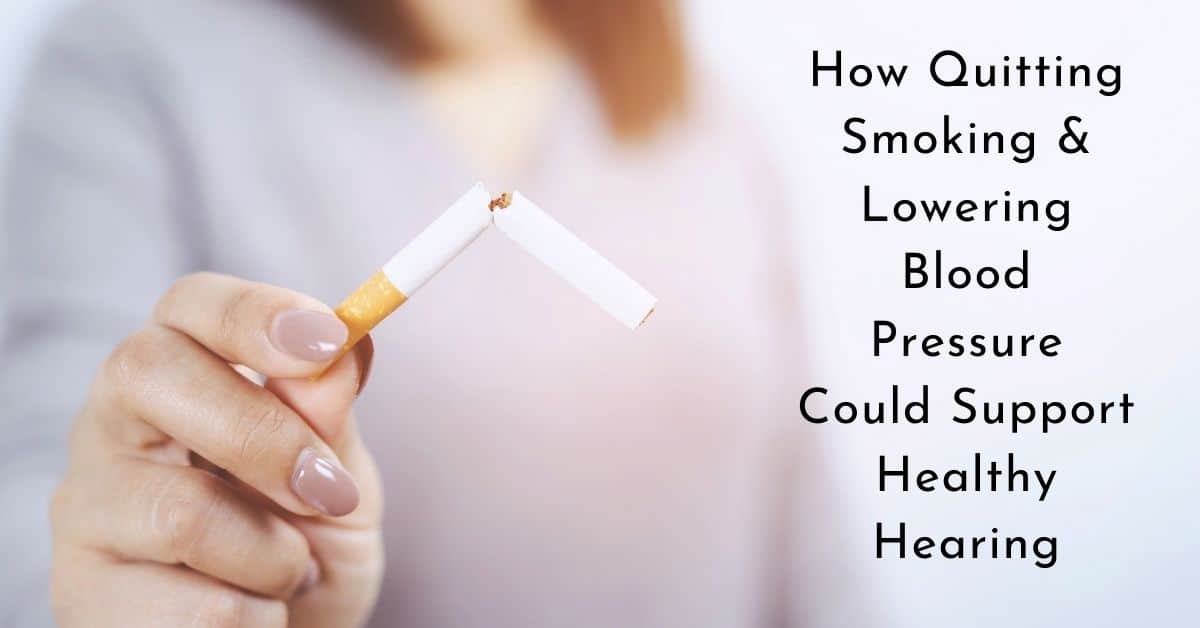
The human body contains trillions of cells, 78 different organs, and more than 60,000 miles of blood vessels. Incredibly, to keep you alive, all these cells, vessels, and organs work closely together.
Each organ is part of one of ten body systems. These systems are interconnected and rely on each other to work. For instance, your brain and nervous system work together to make your heartbeat, and to build stable, healthy bones, your skeletal system relies on the nutrients it obtains from your digestive system.
Your hearing ability is also affected by changes in the rest of your body. You probably already know that age is related to hearing loss, and your hearing can be impaired by exposure to noise. But did you know that the effects on your body from both smoking and high blood pressure can lead to hearing loss?
The connection between smoking and hearing loss
According to a study involving more than 3,000 participants, smokers are almost 70 percent more likely to experience hearing loss than non-smokers.
The research, conducted in the United States and published in 1998 in the Journal of the American Medical Association, concluded that with the number of cigarettes smoked, the risk of hearing damage also increases. Hearing issues, in many cases, increase proportionately with the severity and length of cigarette smoke exposure. Smokers are one and a half times more likely to have their hearing capacity affected. In all but the oldest age groups, heavy smokers are more than 1.30 times more likely to experience hearing loss. After adjusting for workplace noise sensitivity, age, and lifestyle, the higher prevalence of hearing loss among smokers remains the same.
The study also found that passive smoking could also cause a loss of hearing. It was found that non-smokers living with a smoker were 1.94 times more likely than those who lived away from smokers to suffer from hearing issues.
The connection between high blood pressure and hearing loss
According to the Centers for Disease Control and Prevention, seventy million Americans, or one out of every three people, have high blood pressure. A further one in three adults is living with elevated blood pressure or prehypertension.
With high blood pressure, the heart pumps blood at a faster rate into your arteries. The intense force of blood slamming into your arteries causes the smooth linings of blood vessels to be damaged, forming bumps on the arteries’ walls. Tiny pieces of fatty plaque then begin to build up to create a larger bump around the bump. When more plaque sticks to the bump, blood flow is eventually impacted.
Smaller openings in the arteries increase blood pressure, which damages blood vessels anywhere in the body, including the ears. This damage prevents blood flow to the vital regions in the ear which receive and process sound. This is perhaps why studies have shown a greater rate of hearing loss in people who have high blood pressure.
There may be permanent damage to the ears and permanent hearing loss if the blood pressure rate remains high for an extended amount of time. When the blood pressure is reduced, a person with high blood pressure for a brief period can have their hearing return to normal, but as high blood pressure is a chronic condition, so will any hearing loss connected to hypertension.
Quit smoking and see your doctor
Since untreated hearing loss is linked to a slew of physical and mental conditions long term, you must address these possible causes of hearing loss.
Quitting smoking is the first and most obvious thing to do if you are a smoker. This is, of course, easier said than done. To quit smoking successfully, you’ll need to address the patterns and routines that go along with smoking. Any smoker can kick the habit with the correct help, even if you’ve tried and failed many times before.
If you have high blood pressure, you should also see your doctor monitor your blood pressure levels. It’s no doubt a good thing to treat your hearing loss with hearing aids, but your hearing will continue to worsen if the blood pressure problem is not fixed.
For all your hearing needs, visit us!
If you have noticed recent changes to your hearing, the best place to begin is a comprehensive hearing test. Our professional team will work with you to build a customized care plan to get you set on the path to improved hearing. Contact us today!
